Checkout using your account
Checkout as a new customer
Creating an account has many benefits:
- See order and shipping status
- Track order history
- Check out faster
Syringes
Syringes are an indispensable tool in chromatography and play a central role in sample preparation and injection. They are used to introduce precise quantities of liquids or gases into the chromatographic system, which is crucial for the accuracy and reproducibility of the analyses.
Chromatography syringes are available in various designs and sizes to meet the different sample handling requirements. The most commonly used syringes are microsyringes, which are available in volumes ranging from microlitres to several millilitres. These syringes are characterised by their high precision and accuracy, which is particularly important when working with small sample volumes.
A key feature of chromatographic syringes is their material composition. High-quality syringes are often made of glass or special plastics that are chemically inert and resistant to the solvents and chemicals used. This prevents contamination and reactions that could impair sample quality.
The needles of the syringes are also of great importance. They are available in different diameters and lengths to meet different requirements. Thinner needles are suitable for injecting into small vials or columns, while thicker needles can be used for larger sample volumes. The tips of the needles can be pointed or rounded, depending on whether they are injected directly into the chromatographic system or into a vial.
Syringes with fixed needles are particularly useful for automated injection systems as they ensure consistent and reproducible injection. For manual injections, detachable needles offer more flexibility as they can be replaced if necessary.
Another important aspect is the tightness of the syringes. High-quality syringes have precisely manufactured plungers and seals that prevent leakage and enable even and controlled injection. This is particularly important when working with volatile or reactive substances.
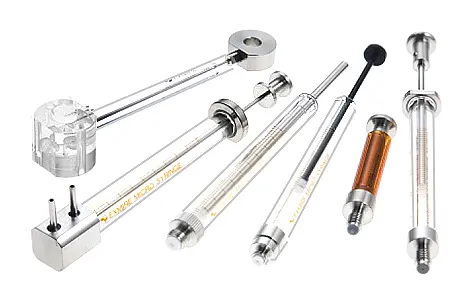

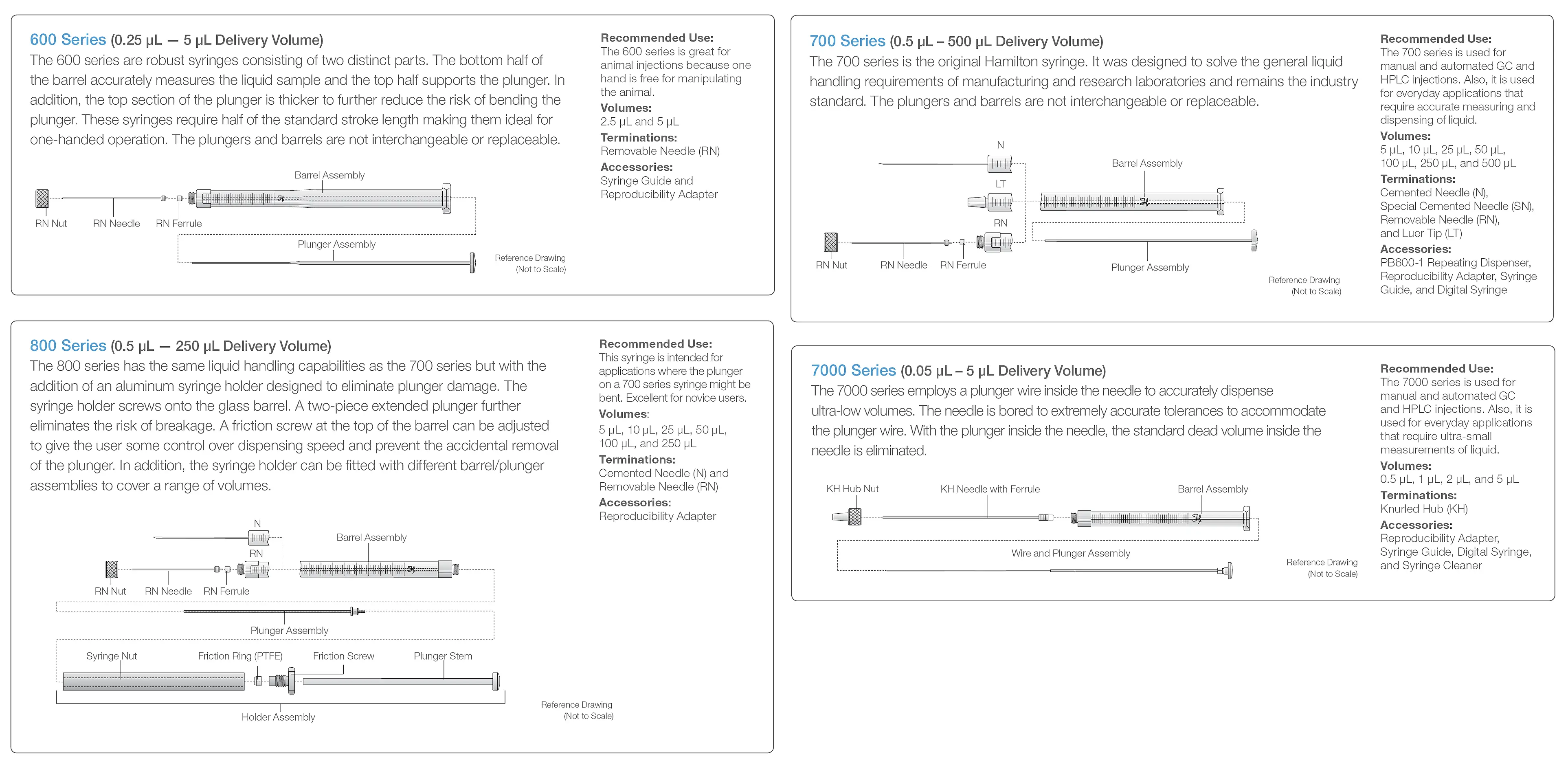
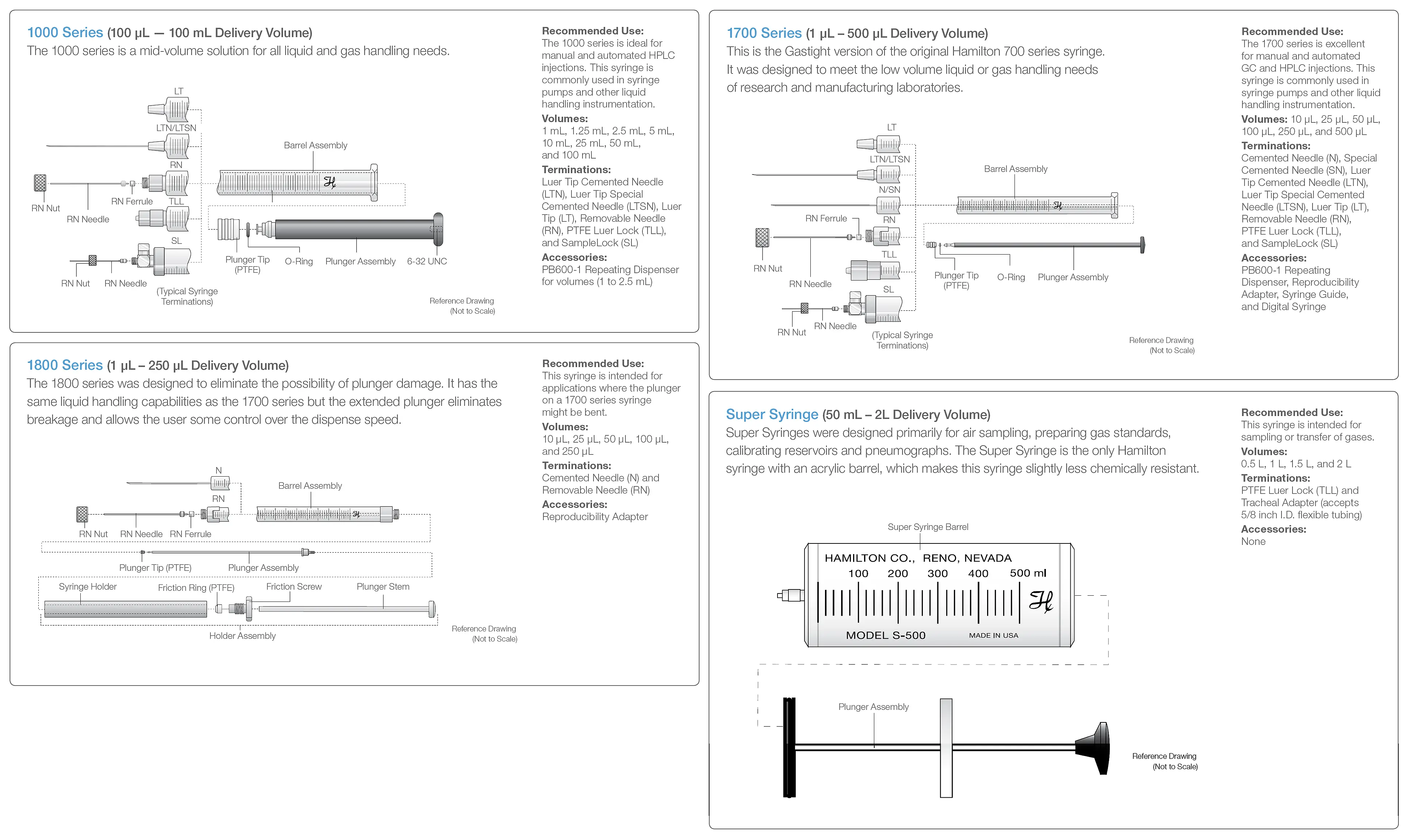
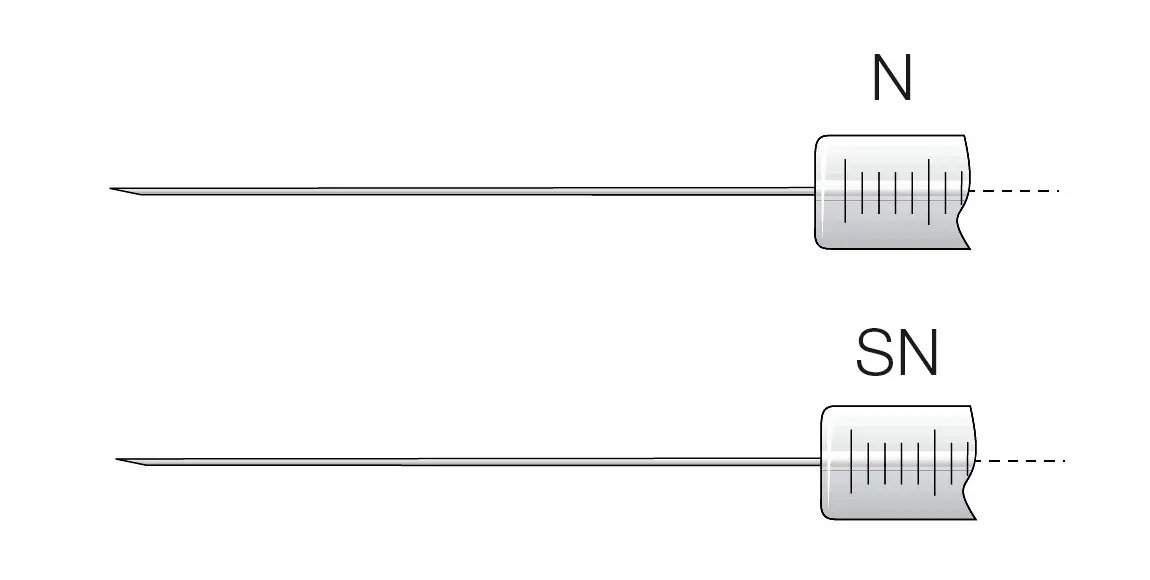
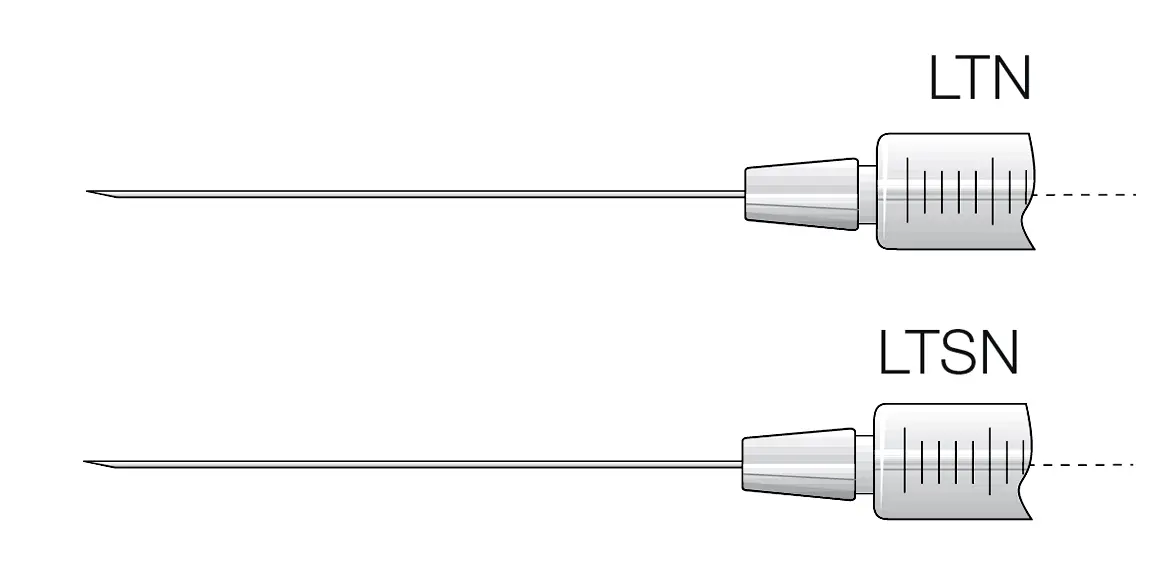
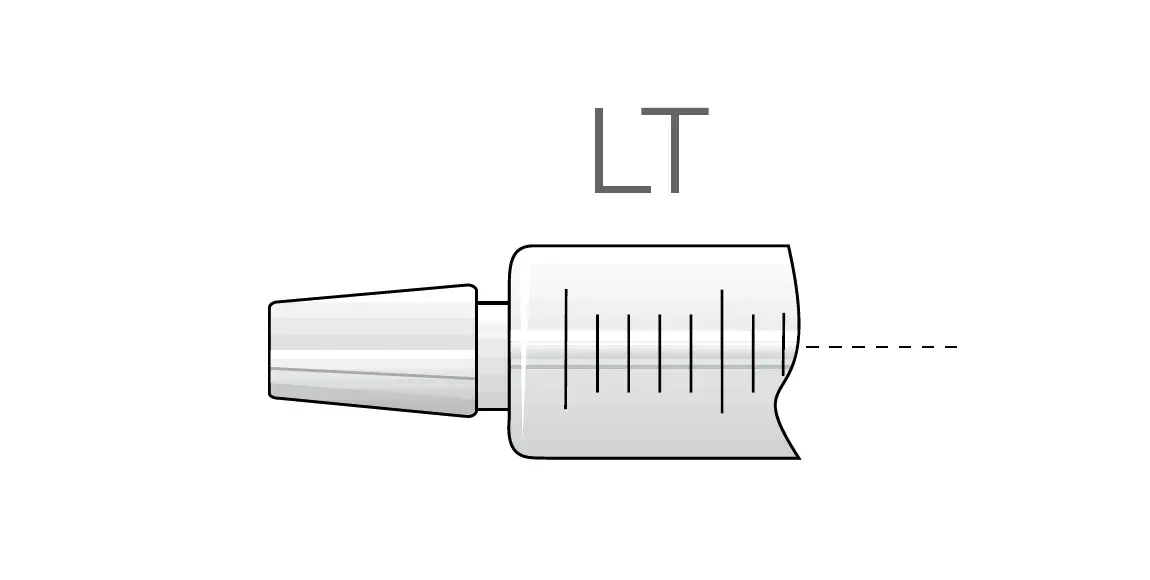
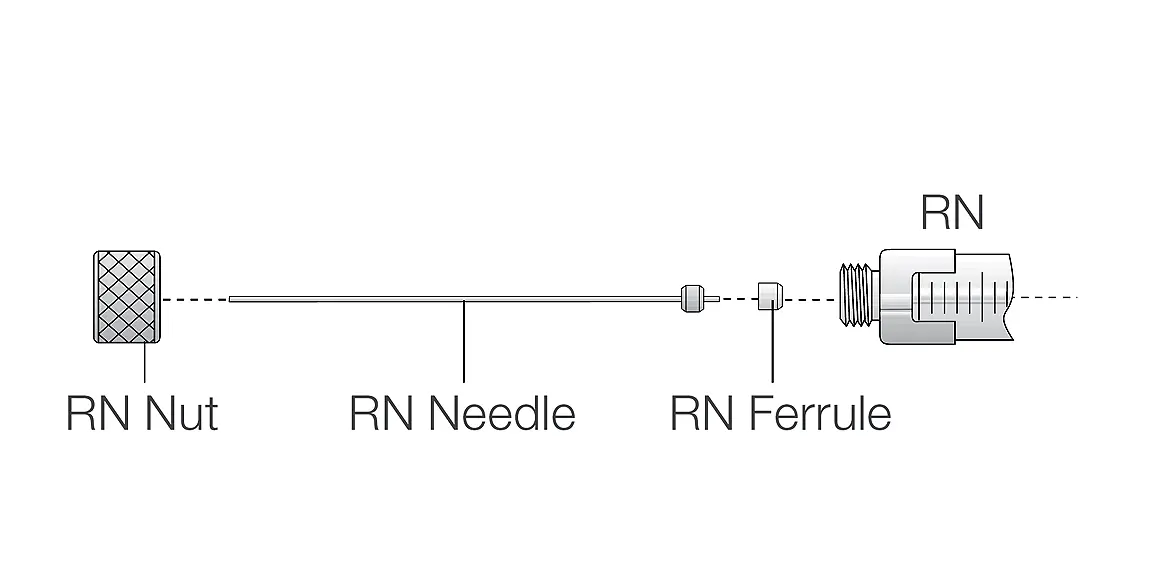
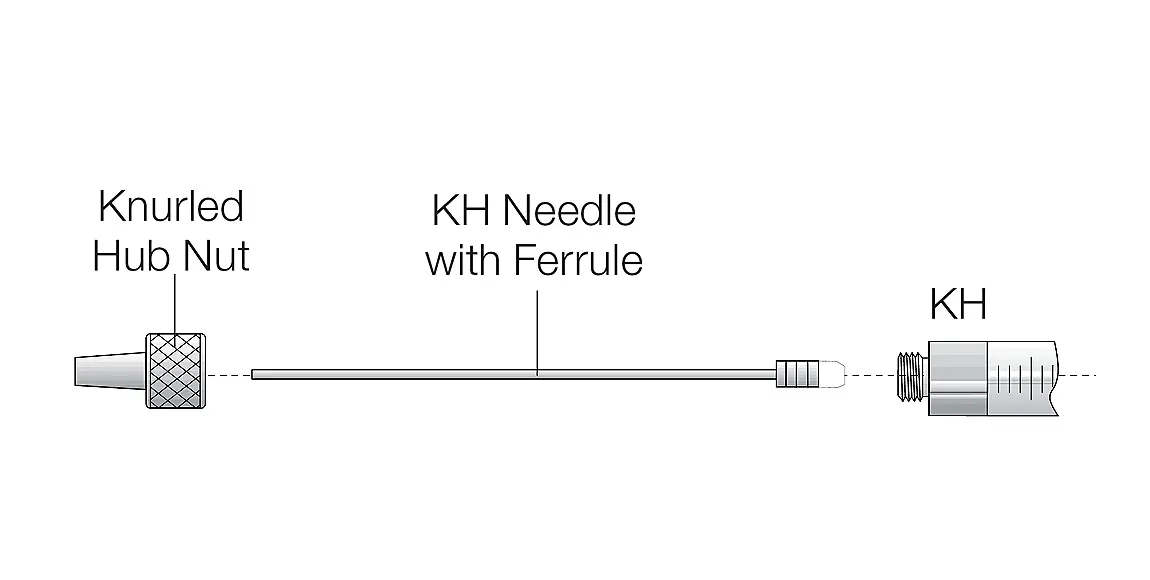
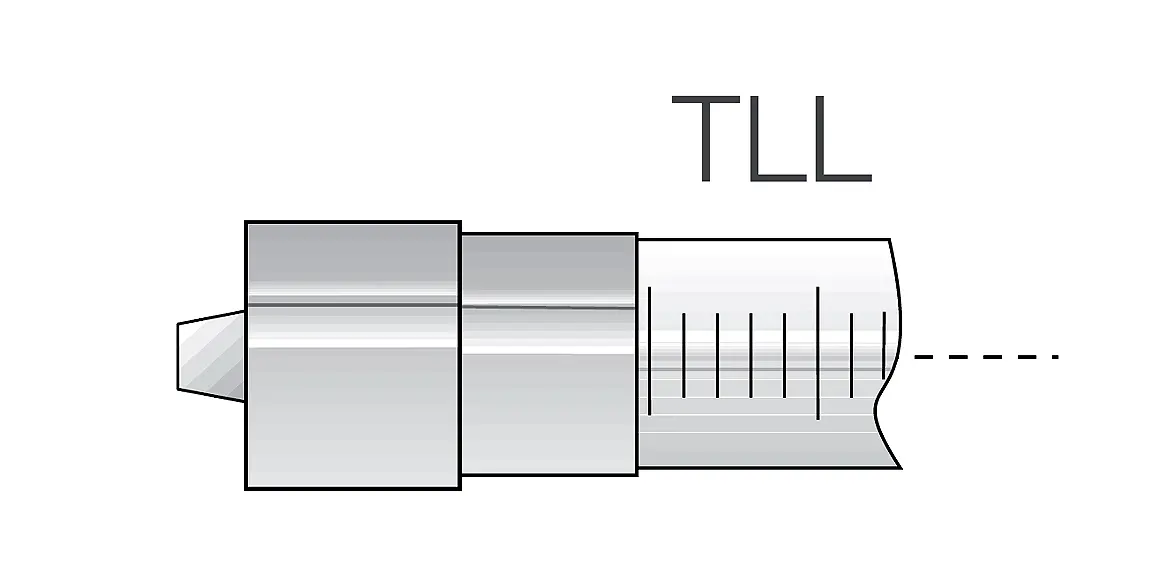
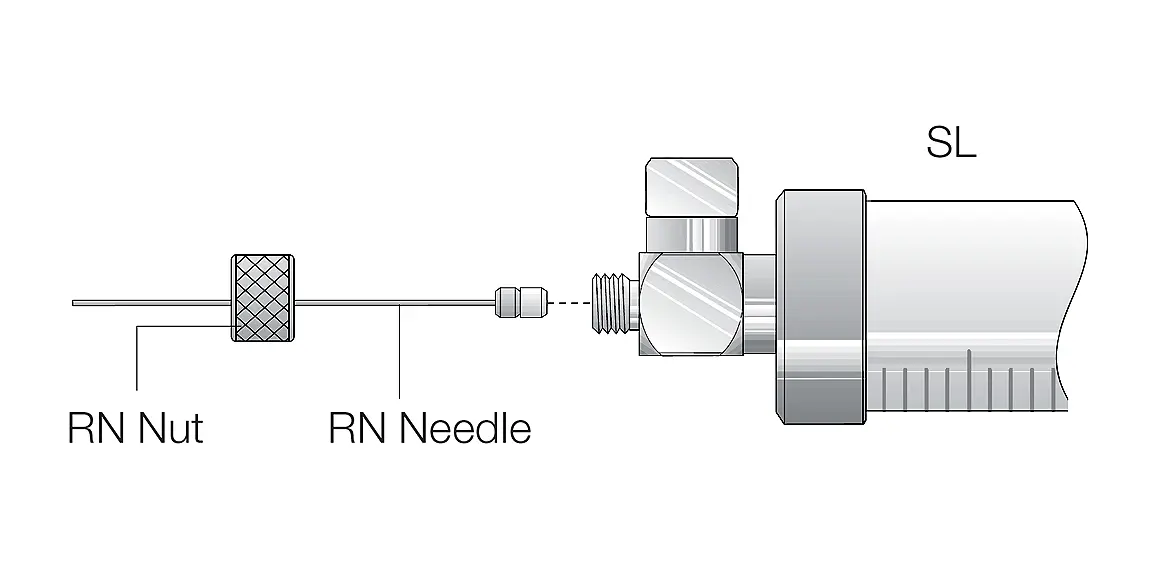
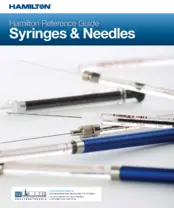 Hamilton Syringe Needle Reference Guide
Hamilton Syringe Needle Reference Guide
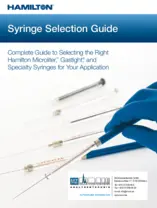 Hamiton Syringe Selection Guide
Hamiton Syringe Selection Guide